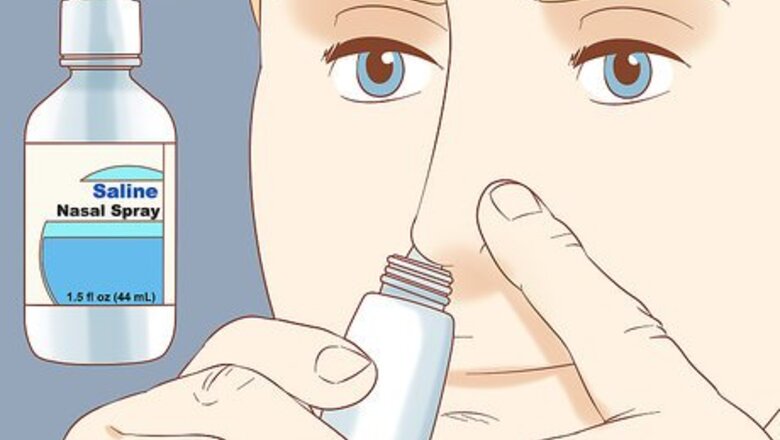
views
Use a saline nasal spray 3 to 4 times daily.
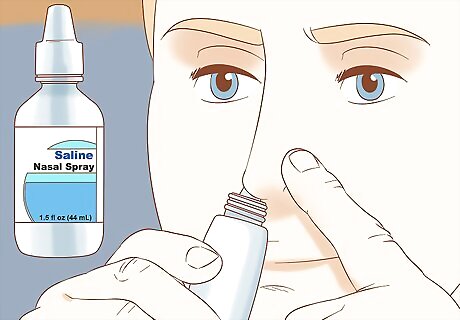
Purchase a non-medicated saline solution from the drugstore. Spray the solution 1 to 2 times in each nostril 3 to 4 times per day to help clear up your runny nose. It will break up the mucus and open up your sinuses so you can breathe better. You can also make your own saline nasal wash by mixing 1 cup (240 mL) of warm water, ½ teaspoon (3 g) of salt, and a pinch of baking soda. To prevent infection, boil the water, then let it cool. Preferably, use distilled water instead of tap. If you use a homemade solution, gently sniff it into your nostrils, but be careful not to inhale it into your lungs.
Irrigate your nasal passages with distilled water.
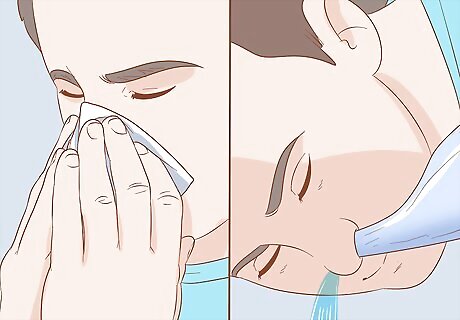
Flush your sinuses at home with sterile water. Start by blowing your nose to get rid of excess mucus. Then draw a store-bought nasal rinse solution or sterile distilled water into a nasal irrigation bulb or pot. Tilt your head to the side, then pour the solution into your upper nostril, or the one that faces the ceiling as your head is tilted. Allow the rinse to drain out of your lower nostril, then repeat the steps on the other side. Nasal irrigation can help drain mucus and flush out irritants that cause a runny nose. Hold your breath or breathe through your mouth while you irrigate your nasal passages. To prevent infection, always use distilled water or water that’s been previously boiled and cooled.
Drink a hot cup of tea.

Hot beverages help loosen up congestion. They can also help relieve other symptoms, like a sore throat or a headache. Pour yourself a cup when you wake up or before you go to bed to loosen up your mucus. If you’re drinking tea before bed, go for a non-caffeinated herbal mixture.
Run a hot shower and inhale the steam.
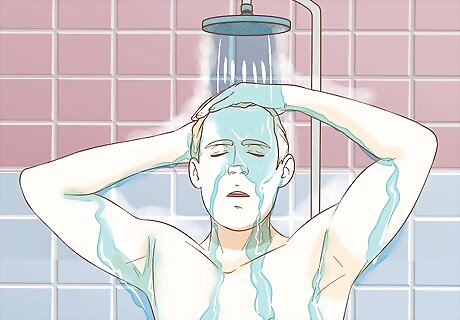
Steam helps break up mucus and congestion. If you’re blowing your nose nonstop but feel stuffed up no matter what, try breathing in steam. Close the bathroom door, run a hot shower, and breathe in the steam for about 10 minutes. Inhale steam 2 to 4 times a day until your congestion improves. Steam can break up nasal congestion, loosen thick mucus, and relieve sinus pressure. You’ll probably need to blow your nose a lot right after running the shower, but draining all that mucus will help get rid of your runny nose in the long haul. Taking too many hot showers isn’t good for your skin, so just sit in the bathroom while the shower runs instead of actually showering 4 times a day. If you don’t want to run a shower, fill a large pot with hot water and drape a towel over your head. Hold your face as close to the water as you can while inhaling the steam for about 5 minutes.
Place humidifiers throughout your home.
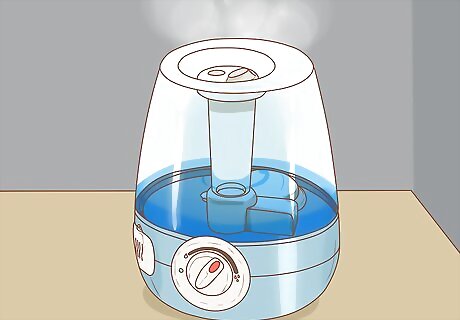
Humidifiers add moisture to the air which can soothe your nose. At a minimum, keep a humidifier in your bedroom, especially if you routinely wake up with a runny nose. You can also put a humidifier in areas that you spend a lot of time in, like your office. If you live in a humid environment, a humidifier might not be helpful.
Decrease the severity of a cold with zinc.
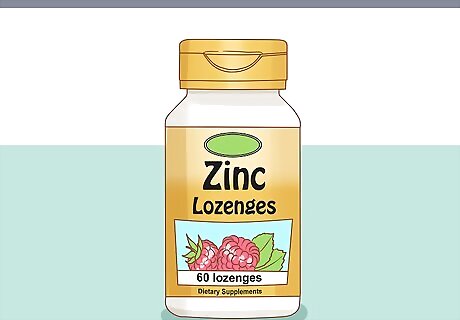
Studies are mixed, but zinc may be able to relieve cold symptoms. To manage common cold symptoms, take a zinc lozenge that contains up to 24 mg of elemental zinc every 2 hours. Limit your daily consumption of zing to 100 mg, and stop taking it once you feel better. While zinc probably doesn’t prevent illness, there’s good evidence that it can shorten the duration of a cold in adults. Zinc may cause nausea and affect your sense of taste. As with any other dietary supplement, lower your dose or stop taking zinc if you experience side effects. Go for zinc lozenges instead of nasal sprays. Zinc nasal sprays may lead to permanent loss of your sense of smell.
Stay away from smoke, pollen, and other irritants.

These triggers can make your runny nose much worse. Take note of specific triggers that may be causing your runny nose and do your best to avoid them. Common irritants include tobacco smoke, pollen, sudden temperature changes, pet dander, and strong perfumes. Investing in an air purifier can help rid the air in your home of the allergens that make your nose run. Keep your pets out of your bedroom to keep your sleeping area free of fur and dander. If a friend or coworker wears a strong perfume or cologne that aggravates your allergies, bring up the subject politely. Say, “I hope this doesn’t come off as pushy, but some perfumes make my allergies go crazy. Is there any way you could wear less or switch to a neutral scent when we’re together?”
Keep your house and bedding clean.

Dust, pollen, and allergens tend to build up in your home. These can contribute to nasal congestion and other allergy symptoms. Get rid of allergens by regularly dusting, vacuuming, and mopping your living areas, especially if you know you have allergies. You can also minimize allergens in your bedroom by making your bed every day and washing your sheets and pillowcases regularly.
Cover your nose with a scarf in cold temperatures.
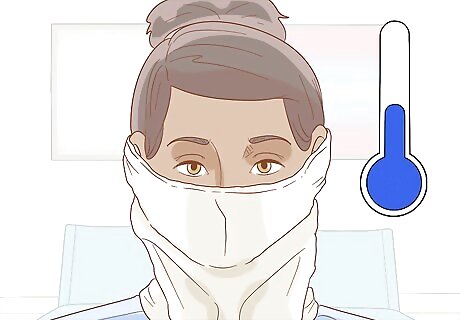
Cold, dry air irritates your respiratory system. Your nose’s job is to warm and humidify the air you inhale. To accomplish this in cold weather, your nose produces lots of mucus. Keep your runny nose in check when it’s cold and cover your face with a scarf or fleece mask. It may seem like winter weather makes you sick, but a runny nose is actually just your body’s natural response to cold temperatures.


















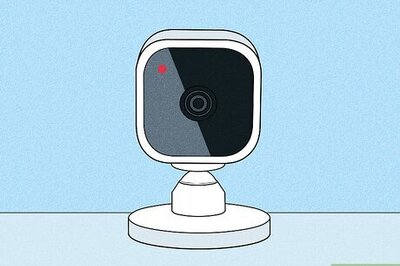

Comments
0 comment